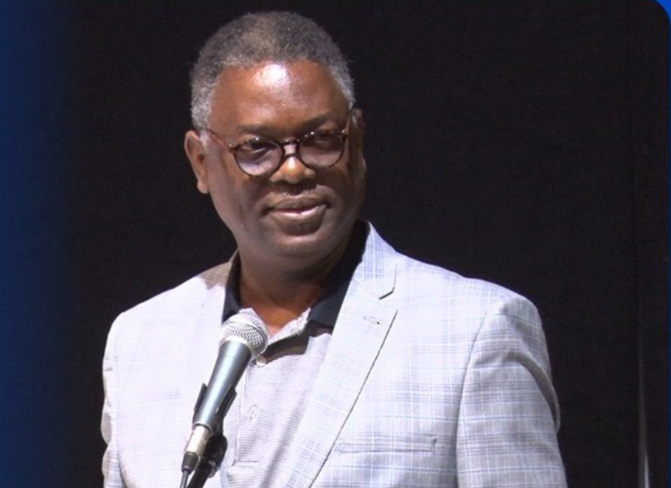Nigeria police officers | File photo
On February 20, the house of representatives passed for a second reading a bill seeking to establish state police.
The bill is sponsored by Benjamin Kalu, deputy speaker of the house, and 13 other lawmakers.
The legislation proposes to transfer the term “police” in the 1999 constitution from the exclusive legislative list to the concurrent legislative list.
The bill, which comprises 18 clauses, seeks to amend sections 34, 35, 39, 42, 84, 89, 129, 153, 197, 214, 215 and 216 of the constitution.
Advertisement
There has been a growing call for the establishment of state police in recent months following the uptick in insecurity across the country.
However, this is not the first time the state police bill has been considered by lawmakers. Attempts to pass the bill in the eighth and ninth assemblies met a brick wall.
Below are key highlights of the bill obtained by TheCable:
Advertisement
FEDERAL AND STATE POLICE WON’T CLASH
To avert clashes between federal and state police, section 214 (4) of the bill says that the federal police “shall not interface with the operations of any state police of the internal security affairs of a state”.
Section 124 (4a) outlines circumstances under which the federal police can address “serious threats to public order” within a state. The first circumstance is where there is a “complete breakdown of law and order” and the state police are unable to contain such a threat.
The second reason is if the state police is “unable to function owing to administrative, financial or other problems which render it inoperative at a given time”.
Advertisement
But for the federal police to intervene under the aforementioned circumstances, the governor of a state must request such action, which must then be endorsed by a two-thirds majority of the senate.
Implication
The section sets a clear framework for the roles and responsibilities of both federal and state police forces to prevent conflict between them.
It sets a boundary for the federal police not to interfere with the operations of state police or the internal security affairs of a state. This will ensure that the state police can carry out their duties without undue interference from federal authorities.
Advertisement
The requirement for the governor of a state to demand federal intervention and for such a request to be approved by a two-thirds majority of the senate is an additional layer of checks and balances, and to ensure that federal intervention is only initiated when deemed necessary and has widespread support.
GOVERNORS TO APPOINT COMMISSIONER OF POLICE
Advertisement
According to section 215 (4) of the proposed legislation, “state police shall be headed by a commissioner of police who shall be appointed by the governor of the state on the advice of the Federal Police Service Commission from among serving members of the state police subject to confirmation by the state house of assembly”.
Subsection 5 states that “the governor or such other commissioner of the government of the state as he may authorise on his behalf may give to the commissioner of police such lawful directions with respect to the maintenance and securing of public safety and order as he may consider necessary, and the commissioner of Police shall comply with those directions or cause them to be complied with”.
Advertisement
However, in a situation whereby the commissioner of police believes that a directive given to him is “unlawful or contradicts general policing standards or practice”, he may request that the matter be referred to the “State Police Service Commission for review” and the decision shall be final.
In subsection 6, the national assembly may empower the Federal Police Service Commission (FPSC) to prescribe a bi-annual certification review of the activities of state police to ensure that they meet with approved national standards and guidelines of policing, and that their operations do not undermine national integrity, promote ethnic, tribal or sectional agenda or marginalise any segment of the society within the state.
Advertisement
Implication
The bill foresees situations where the governor gives the commissioner of police an “unlawful” order or one which contradicts policing standards.
If this happens, subsection 5 allows the commissioner of police to request the State Police Service Commission to review such instruction. This mechanism ensures that decisions made by the governor or their representatives are subject to scrutiny and can be challenged if deemed inappropriate or unlawful. It prevents the unchecked exercise of authority and promotes adherence to legal and ethical standards within law enforcement.
FEDERAL GOVERNMENT MAY PROVIDE GRANTS OR AID
Section 216 of the proposed legislation stipulates that a commissioner of police of a state shall only be removed by the governor upon the recommendation of the Federal Police Service Commission on any of the following grounds:
- Misconduct in the performance of his official duties
- Breach of policing standards, law, Regulation, Code and Code of Conduct
- Conviction of any offence involving fraud or dishonesty by a court of law or tribunal
- Bankruptcy, or
- Mental incapacity.
Despite the above offences, the removal of the commissioner of police is subject to a two-thirds majority of the house of assembly of the state.
The same section of the bill says the federal government may provide grants or aid to state police on the recommendation of the Federal Police Service Commission, subject to the approval of the national assembly.
Implication
A governor’s power to remove a commissioner of police is contingent upon the recommendation of the Federal Police Service Commission. This requirement ensures that decisions regarding the removal of a commissioner of police are not based on the whims and caprices of the governor, but on thorough assessment to prevent arbitrary or politically motivated actions.
FPSC TO RECOMMEND APPOINTMENT OF COMMISSIONER
The proposed amendment to part I of the third schedule, paragraph 30, stipulates that the Federal Police Service Commission shall be responsible for:
- Recommending to the governor of a state the appointment of the commissioner of police, deputy commissioners of police and assistant commissioners of police of the state police based on a list submitted to it by the state Police Service Commission of the relevant state and subject to confirmation by the house of assembly of the state.
- Recommending to the governor the discipline and removal of the commissioner of police, deputy commissioner of police and assistant commissioner of police of the state police.
- Supervising the activities of the federal police and state police to the extent provided for in this constitution.
- Prescribing standards for all police services in the country in training, criminal intelligence databases, forensic laboratories; and…
- Assist state police in the areas as may be requested by such state police.
Implication
By giving the Federal Police Service Commission the power to prescribe standards for police services nationwide, including training, criminal intelligence databases, and forensic laboratories, it is hoped that there will be professionalism and efficiency within the police force. These standards ensure that all police departments operate at a consistent level of quality.
MEMBERS OF STATE POLICE SERVICE COMMISSION
In part Il of the third schedule, the bill proposes that a State Police Service Commission will comprise the following members:
- A chairman to be appointed by the governor subject to the confirmation by the state house of assembly.
- A representative of the federal government to be appointed by the Federal Police Service Commission.
- Two members representing the National Human Rights Commission who shall be indigenes of the respective states.
- One representative of the Public Complaints Commission.
- A representative of the Nigerian Labour Congress to be appointed by the chairman of the state branch.
- Three retired police officers to be appointed by the governor, one from each senatorial district of the state subject to confirmation by the state house of assembly.
- A representative of the Nigerian Bar Association to be appointed by the president of the Nigerian Bar Association who shall be a legal practitioner from the respective state.
- A representative of the Nigerian Union of Journalists to be appointed by the chairman of the state branch.
The commission will also be responsible for recommending the appointment of a commissioner of police, deputy commissioner of police and assistant commissioner of police to the Federal Police Service Commission. It can also recommend the appointment, discipline and removal of members of the state police below the rank of assistant commissioner of police.
To recommend the appointment of a commissioner of police, the commission will propose three qualified candidates to the Federal Police Service Commission.
The bill also proposes that the state commission may also carry out other functions and powers as may be specified in either the constitution or a law of the state assembly.






